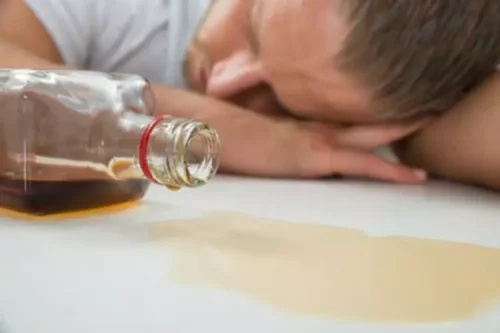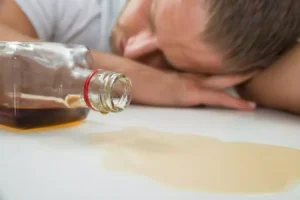
However, alcohol can interfere with this process and cause the body to produce more urine than it needs to (breaking the seal). This can lead to dehydration and further electrolyte imbalances. Consuming alcohol while dehydrated will just make dehydration worse. The diuretic effects will cause your body to lose water faster due to increased urination. The best way to ensure proper hydration is to drink plenty of water.
- After a night of drinking it’s important to make sure you rehydrate.
- All of these are common symptoms of dehydration, which is why many people believe that wine dehydrates you after you drink it.
- As the levels of this hormone decrease, your kidneys produce more urine, leading to a higher risk of dehydration.
- While all liquids can help maintain hydration status, some may be more beneficial than others.
Drink responsibly

Staying well-hydrated is a simple yet profoundly important health choice. When you ditch the booze and focus on hydration, you’re offering your body an opportunity to shine. As a vasodilator, ethanol widens the blood vessels near the surface of your skin to boost blood flow, making you feel warm. Excessive amounts of alcohol also ramp up your metabolism and cellular activities, which generates more heat. If you need help quitting this alcoholism symptoms toxic habit, contact our alcohol detox. We provide a comprehensive alcohol addiction recovery program including detox, counseling, group therapy, and aftercare planning.
- A good rule of thumb is that the higher the beverage’s alcohol content, the more dehydrating.
- Significantly high levels of caffeine intake may contribute to dehydration by stimulating the body to release more liquid than usual.
- Get helpful tips and guidance for everything from fighting inflammation to finding the best diets for weight loss…from exercises to build a stronger core to advice on treating cataracts.
- You weren’t planning for a headache, nausea, and endless trips to the bathroom to interrupt this party.
- “Incorporate water before, during and after alcohol consumption to help combat that water and electrolyte loss.”
- This is a natural part of respiration, and under normal circumstances, it’s a minimal loss that doesn’t significantly affect your overall hydration status.
Type and amount of alcohol consumed:
- Eating high-protein meals is a great way to stay full and energized while building muscle, but overdoing it on protein can lead to dehydration.
- As you can see, wine can dehydrate you if you drink it on an empty stomach or if you drink multiple glasses in a row without drinking water to accompany them.
- While water is one of the best drinks for hydration, drinking plain water without electrolytes can worsen dehydration.
- Next Health clarifies the relationship and difference between alcohol and hydration.
When alcohol is dehydrated, -OH group and a hydrogen atom from the next carbon atom in the chain is removed. There are two possibilities of happening with molecules like butan-2-ol. Inthis step, the breakdown of the C-O bond takes place which generates acarbocation. This step is considered as the slowest step in the mechanism ofdehydration of an alcohol.
- Alcohol is a diuretic, which means it moves fluid out of your body and can easily dehydrate you.
- Research has not found a correlation between the extent of electrolyte disruptions and the severity of hangovers, or the impact of added electrolytes on hangover severity.
- When you’re thirsty — or after you’ve gone for a run — you probably don’t reach for a beer, and you certainly don’t mix an Old Fashioned.
- The gastrointestinal tract often bears the brunt of heavy drinking.
Alcohol depletes your antioxidant levels
A study from PLOS One also shows that drinking chilled carbonated beverages can https://ecosoberhouse.com/ give you a false impression that it’s hydrating when, in fact, it’s robbing you of H2O. You can also pair the listed drinks with plenty of water throughout the day to help you stay hydrated. However, research is mixed on whether these beverages increase urine output significantly. Coffee, tea, and soda contain caffeine, a central nervous system stimulant that acts as a natural diuretic to increase urine production (1). The short-term effects of alcohol develop quickly—within minutes after your first drink—impacting mood, coordination, speech, memory, and behavior. Alcohol causes irritation and inflammation along your gastrointestinal (GI) tract, disrupting normal digestive function.

A small amount of caffeine may not be an issue for most people, though increasing caffeinated beverages may contribute to overall caffeine intake. The body may tolerate a moderate intake of beer without experiencing dehydration. We created our BodyBio E-Lyte concentrate to does alcohol dehydrate you counteract the effects of dehydration and boost electrolyte and mineral stores to help alleviate symptoms across the board. Let’s talk about dehydration from alcohol — why it happens, how to avoid it, and the immediate remedies you can use to avoid a hangover. That impact shows very little relationships between alcohol and dehydration, and it’s not just one thing.


Ever wake up after a night of drinking feeling parched while your head was pounding? Alcoholic drinks make you lose up to four times more water than they provide, leading to dehydration in a hurry. That’s right—it can also happen if you eat or drink certain foods and beverages that have a diuretic effect, meaning they help your body get rid of fluids. To ensure you’re properly hydrated, exercise caution with these foods and drinks that can cause dehydration—especially when it’s particularly hot out. Interestingly, a review of 49 studies even reported that caffeinated energy drinks, wine, and spirits can all significantly increase urine production (14).
If you’re struggling with alcohol addiction, the first and most important step you can take is to seek help. Antioxidants are like the defenders of your skin, fighting off rogue elements that can harm your dermis. They come in many forms, with some key players being vitamins C and E, as well as compounds like beta-carotene.


Recent Comments